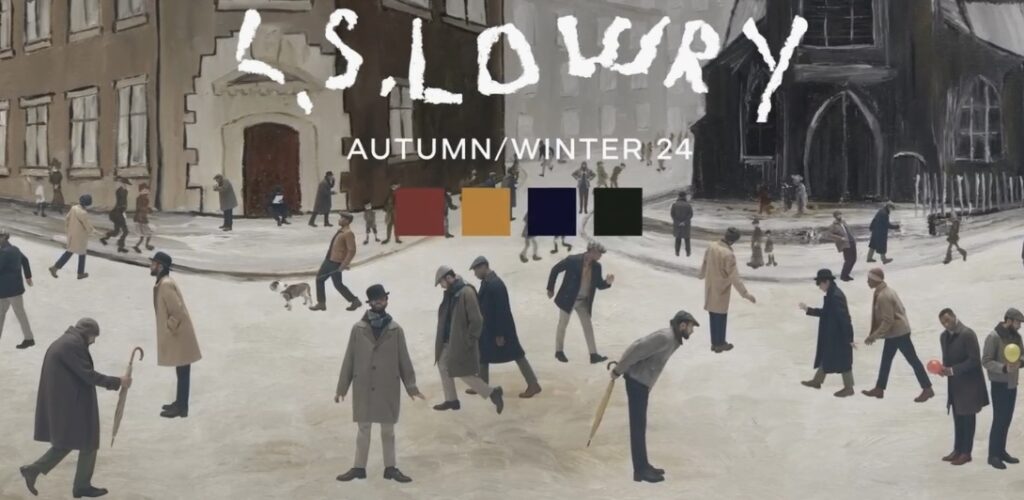In the aftermath of World War I, many soldiers returned home to a society that was both grateful and uncertain of how to integrate them into civilian life. For Private Jack White V.C., however, the transition from soldier to civilian was not just successful; it was transformative. Decorated with the Victoria Cross for his extraordinary bravery during the Great War, Jack White returned to Manchester not to rest on his laurels, but to carve out a second chapter as impressionable as his first. His journey from a battlefield hero to the owner of a thriving raincoat factory speaks volumes about resilience, adaptability, and leadership—a narrative that deserves both reflection and celebration.
Jack White’s military service was nothing short of heroic. The Victoria Cross is reserved for acts of valor so profound that they transcend the horror of war. White’s actions in the trenches were a testament to his courage, his quick thinking, and his refusal to abandon his comrades in the face of overwhelming odds. But while history often preserves such stories of wartime gallantry, what is less discussed is how these individuals continue to live—and contribute—after their military service.
White’s post-war trajectory is a remarkable study of personal reinvention. Upon returning to Manchester, he chose an unlikely path: apprenticing as a pattern cutter at a local raincoat factory. For a man who had led troops into battle, this decision to start at the bottom of the industrial ladder demonstrates a level of humility and pragmatism not often associated with decorated war heroes. It was also, perhaps, reflective of the stark reality that many veterans faced—a need to find purpose in a world that had dramatically changed while they were away.
What set White apart in his new civilian role was his relentless work ethic and an innate sense of leadership, qualities undoubtedly shaped by his time in the military. Rising through the ranks of the factory, White quickly gained the respect of his peers, and within less than 20 years, he became the sole owner of the factory. His success was not the result of luck or mere circumstance but a product of his ability to lead, inspire, and innovate—traits that had once been honed on the battlefield and were now being applied in a completely different arena.
In an era where industrial Manchester was a hub of textile innovation, raincoat production was both a practical necessity and a competitive market. White recognized the potential in this industry and leveraged it to his advantage. As general manager, and later owner, of the factory, White modernized production processes, emphasizing quality, durability, and style. His factory became a key player in the city’s industrial fabric, producing raincoats that not only served a practical purpose in the rainy climate but also contributed to Manchester’s reputation as a center for garment production.
Jack White’s story is not just one of individual success but also one of broader significance. His transition from war hero to businessman challenges the often one-dimensional narratives we hold about veterans. It forces us to reconsider the contributions of soldiers beyond their military service, highlighting the skills and leadership qualities they bring to civilian industries. Moreover, White’s rise in the raincoat industry serves as a case study in how veterans can reinvent themselves in peacetime, using their experiences in war to inform their leadership in business.
Yet, there is a deeper reflection to be had here. Jack White’s journey from battlefield to boardroom represents the resilience of a generation of men who were thrust into unimaginable circumstances and who, upon their return, had to rebuild both themselves and the world around them. White’s accomplishments in the raincoat factory were a direct extension of his wartime leadership—a continuation of his desire to lead, to serve, and to succeed. His story, then, is not just about personal achievement but about the indomitable human spirit’s ability to adapt and thrive, even in the face of adversity.
Today, as we look back on stories like Jack White’s, there is much to learn about how we support veterans in their transition to civilian life. Jack White was fortunate to find a new purpose in his post-war years, but many veterans struggled. His story serves as a reminder that these individuals have much to offer beyond their military service, and it is our societal responsibility to ensure that their contributions in civilian industries are recognized and supported.
Jack White V.C.’s legacy is one of bravery, resilience, and vision. From the trenches of World War I to the rain-soaked streets of Manchester, his life was a testament to the power of reinvention and leadership. His contributions to both the military and the raincoat industry serve as enduring reminders of how much one individual can achieve with determination and purpose. Jack White’s journey is one that we should honor—not just for his heroism in battle, but for his lasting impact on British industry and his embodiment of the spirit of post-war regeneration.
No comments yet.








